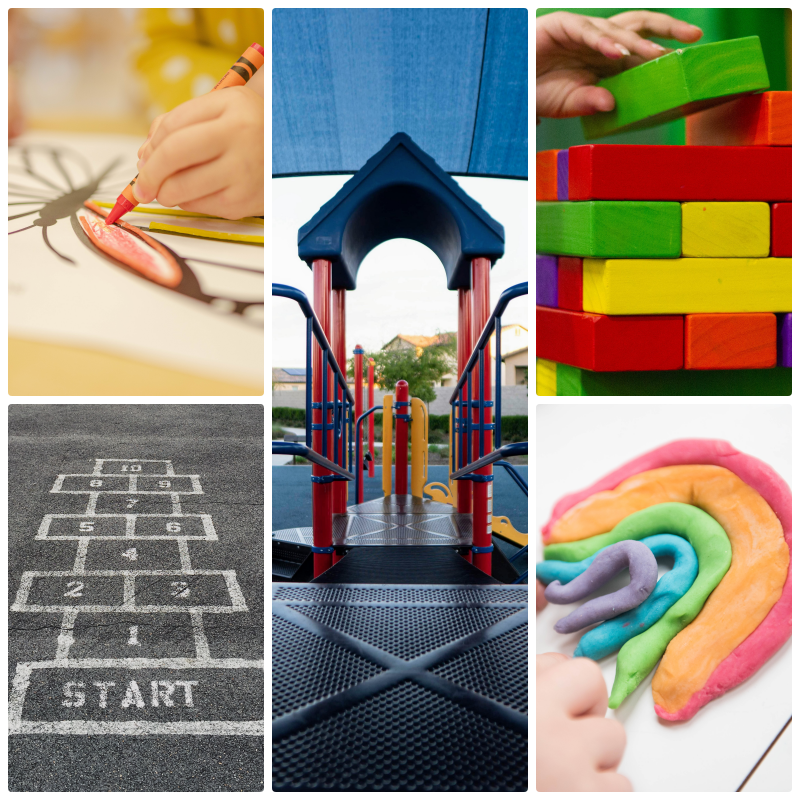Kindergarten Chaos
I always knew that having children in Germany would present some unique challenges, but I wasn’t prepared for how many strange situations I would find myself in. From the outside, it might be assumed that most issues I faced would be related to language. It’s true that I’ve had to learn, retain and then use a lot of hyper specific vocabulary to discuss, for instance, the finer points of the birthing process with doctors, and for the first few months after our daughter was born, picking up medicine and various other supplies from the Apotheke was an ordeal of curiously placed umlauts and ludicrously named prescriptions. I visited the local pharmacy so often that the nice lady at the counter would greet me with a sympathetic head tilt in anticipation of another German linguistic tussle as my Geordie accent attempted to say the deceptively difficult German word “Jod” (iodine) for the thousandth time.
Language was always going to be a factor, but what I wasn’t prepared for was how it would often come in combination with other obstacles. For example, speaking a foreign language after three hours sleep. I’ll readily admit that I’m not the most diligent of language learners, but I can usually communicate and understand the vast majority of everyday German. However, give me less than my required average amount of sleep, and I begin to act like I’ve been lobotomised. Trying to earnestly discuss a new born’s nappy rash (“Windelausschlag”), a term only recently learned via a translation app, with a midwife, in a foreign language, after three hours sleep, is a surreal nightmare ripped straight from the deep recesses of a troubled mind.
Sometimes it isn’t even the language or exhaustion that causes problems, often it’s just the way things are done. New age thinking is a big part of German healthcare, and while I’m not entirely against alternative approaches, it does feel like Germans are far too convinced of the benefits. For every ailment faced by my wife and children, there is a healthcare practitioner ready to recommend tea as the solution. When my daughter had some minor issue in the first months after being born, the initial prescription was for tea. Of course, it couldn’t be hot tea, we’re talking about a child that’s only months old. No, we were told in all seriousness, cold tea would resolve any issues my daughter had. I must say, I felt a not insignificant amount of pride when my daughter duly spat out her first mouthful and refused to drink any more.
Another point I hadn’t considered, and which seems glaringly obvious now, is the fact that as children get older, the challenges multiply. When our daughter reached the minimum age for Kindergarten, we had to play a lottery all but the most privileged parents contend with: preschool placement. In a perfect world, there would be enough places for all kids, but in reality Germany has been dragging its feet for decades on the topic of Kindergarten and preschool childcare. Instead of having space for all children at a publicly run Kindergarten, parents have to apply to various different facilities and then wait for months hoping their application will be accepted.
Parents in Germany will know the disappointment of receiving rejection letters from prospective Kitas and Kindergartens, despite children having a legal right to a daycare place since 2013. Studies into the the issues of German childcare provision note that there are 384,000 missing daycare places across Germany, and a total of 98,600 skilled workers are missing from the daycare profession as a whole. In Bavaria, where I live, the state lacks 62,000 places and 35,300 employees. One point that comes up over and over again is the lack of funding for training, low earnings, and a sense that the role of Kindergarten teacher is not respected by local or national politicians, at least not enough to improve the situation.
This last point is all the more galling once you discover how amazing many preschool teachers can be, something I’ve had the pleasure of seeing firsthand as my daughter spent her first days in her new Kindergarten. Having navigated the lottery of placement, and winning after three years of trying, I took on the responsibility of accompanying our daughter to her first days in her new class, a period known as the Eingewöhnungsphase or adjustment period. Squeezing my 1.92 meter frame (6’3 if we’re getting all imperial) into a tiny school chair in the corner, I must have cut a bizarre figure, but as we had been told at the open day months before, it was vital that a parent sat in on their child’s initial steps into the education system. Although I wasn’t an active part of the class, I was there as a glorified comforter to our daughter, who would periodically bring her pictures to show me, or simply look for me to reassure her as the other children busied themselves around the room.
In many ways I couldn’t have been more close to our daughter in those first few days, given we were both facing new challenges. My daughter was going from being one of two children in our household, to being one of 17 kids in a class, and from the moment she walked in the door, she was learning totally new things. I, on the other hand, faced one of my toughest tests: shutting up and letting our daughter get on with it. Resisting the urge to prompt her when someone asked her a question was hard, but seeing her confidence grow as she gained this small measure of independence was reward enough. Naturally, this being Germany, there were also some nice new words for me to trip over with unerring regularity, such as Erzieherin (Kindergarten teacher) which I butchered on a number of occasions to the enjoyment of teachers and kids alike.
I was curious about whether I would notice any differences from my own experience of nursery way back in the 1980s, but it was only when I sat quietly in the corner that I realised I had little to no actual memory of those days. No matter, what I did see was miraculous enough. Anyone who has tried to get a small child to do anything will know how difficult corralling one belligerent 3 year old can be. Watching the Kindergarten teachers herding 17 kids ranging in age from 3 to 5, teaching them simple but useful skills and remaining patient and supportive throughout, was nothing short of amazing.
The trials and tribulations of raising a child in a foreign country will no doubt continue as our daughter gets older, and I have to assume they won’t all be fixed by improving my German pronunciation. What I can say with certainty, is that my daughter has been given an excellent foundation, thanks in no small part to the diligence of the staff at her Kindergarten. I’ll no doubt be back in the same room once our son reaches his third birthday, and probably facing new challenges too. Hopefully three years is enough time for me to finally nail those umlauts…we’ll see.
Proofreader: @ScandiTina
Image Credit
Photo by Lucas Alexander on Unsplash
Photo by La-Rel Easter on Unsplash
Photo by Markus Spiske on Unsplash
Photo by Ryan Sepulveda on Unsplash
Photo by Jon Tyson on Unsplash
Photo by Julietta Watson on Unsplash










